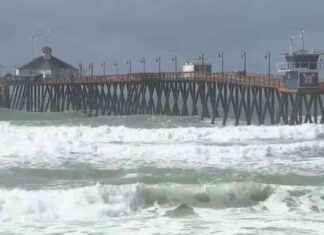Various entities from the rural and local world and forest owners have resumed the offensive against the Nature Agency, very upset with the content of the statutes that will govern the management body of this new Administration body, according to the proposal known yesterday Friday. The Rural Country platform has promoted an initiative for city councils and other social sectors to adhere to a motion as a manifesto in which they demand that the Generalitat modify the composition of the agency’s board of directors to increase the representation of rural sectors. .
The motion has the support of the Association of Local Forest Owners’ Entities in Catalonia and the Catalan Federation of Forest Owners’ Associations, among other entities. Its promoters announce that they will intensify this mobilization after Christmas.
The promoters of these entities complain that this board of directors is poorly representative of the local, rural and forestry world. “They don’t want to let us participate in the governance of the Nature Agency”, laments Josep Maria Vila d’Abadal, former mayor of Vic and promoter of the País Rural platform, which brings together these sectors that feel relegated by the policies of the Government in the forestry sector.
In this motion they allege that the composition of the board of directors only includes two representatives of the local world out of a total of 17 members (plus a president and a vice president). They also regret that the board of directors does not provide any representation for the town councils that own rural land of communal property.
The battle over the statutes of the Agència de la Natura hides a deep disagreement about the configuration and mode of operation of this new organization. These agroforestry sectors demand greater representation on the agency’s board of directors with the aim of defining and influencing policies in the natural environment, at a time when the debate continues to focus on the dilemma between conservation and exploitation.
The motion requests that the entire process to approve the agency’s statutes be paralyzed, that its future powers be modified and that the system of resources it will have be clarified as well as that it not have sanctioning capacity.
Vila d’Abadal maintains that “the agency wants to impose protectionist criteria”, something that is out of place in his opinion, taking into account that “we are losing management capacity in our forests” and that only “a minimal part of “The forests are being exploited.”
Government sources reply that the new body will inherit (and exercise) the powers that until now were carried out by the autonomous Administration in this matter, including the power to impose sanctions (as is the case with the Agència de l’Aigua or the Agència de Residus). “The agency will not have any new functions.”
The general director of Politiques Ambientals, Marc Vilahur, rejects that the operation of the agency will entail more administrative controls over forestry exploitations. “We don’t want to impose restrictions. The agency offers the rural world an opportunity to be more resilient in the face of the environmental crises that we are suffering, the climate crisis and the loss of biodiversity.”
The general director points out that “we do not want the ecological vision to be represented on the board of directors; but this agency should be for everyone,” he says.
He also believes that although there are rural sectors that are in a line of open confrontation, in others he detects a spirit of collaboration. The creation of the agency has galvanized the widespread unrest prevailing in inland and mountain areas that are suffering from a crisis that threatens to deepen the gap between the territories of Catalonia.








